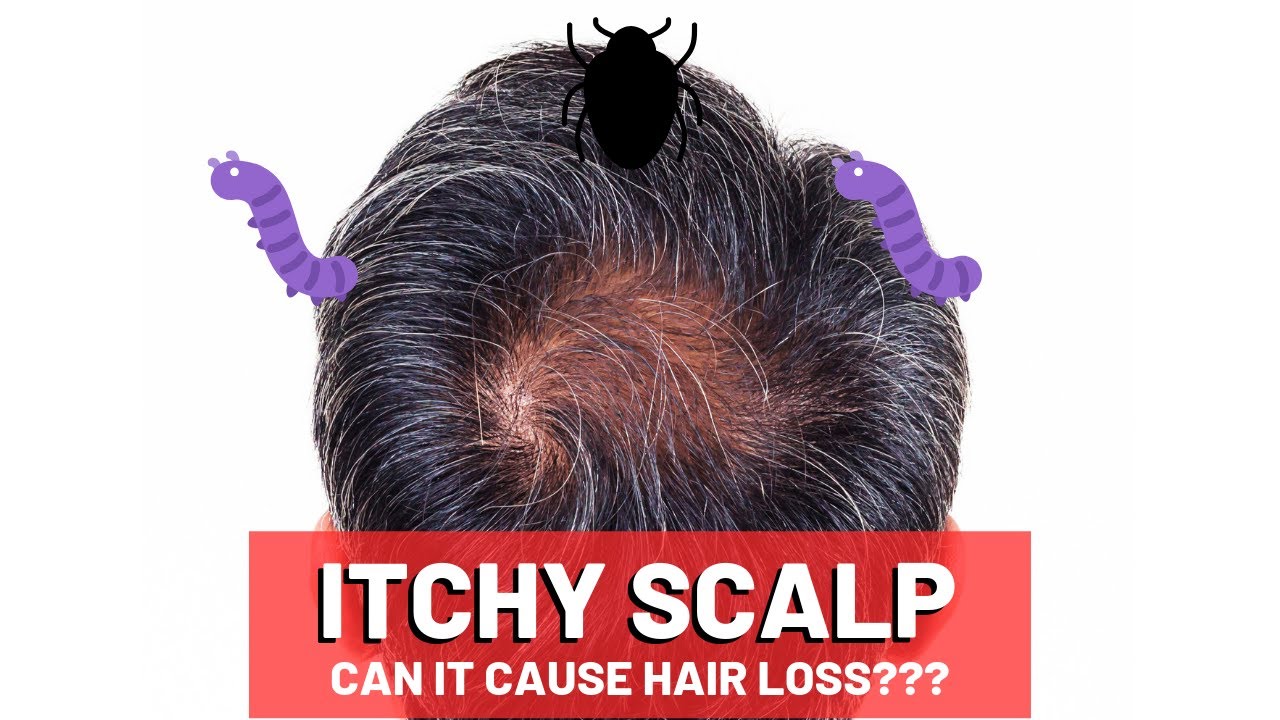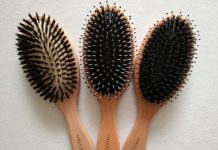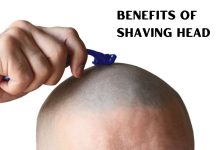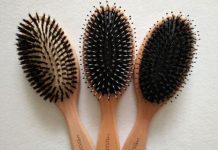Itchy Scalp and Hair Loss
Itchy scalp and hair loss are two common issues that many people face at some point in their lives. While they may seem unrelated, there is often a significant connection between the two. In this article, we will delve into the world of itchy scalps and hair loss, exploring their causes, symptoms, and how they are intertwined.
Defining Itchy Scalp and Hair Loss
Itchy Scalp:
An itchy scalp is characterized by a persistent and uncomfortable sensation of itching on the scalp. This itching can range from mild to severe and may be accompanied by redness, flakiness, or irritation.

Hair Loss:
Hair loss, also known as alopecia, refers to the gradual or sudden loss of hair from the scalp or other parts of the body. It can manifest as thinning hair, bald patches, or excessive shedding.
The Prevalence of Itchy Scalp and Hair Loss
Both itchy scalp and hair loss are prevalent issues worldwide. Millions of people experience these problems at various points in their lives. While they can affect individuals of all ages, certain factors like age, genetics, and lifestyle choices can increase the risk.
The Connection Between Itchy Scalp and Hair Loss
You might wonder how an itchy scalp can lead to hair loss or vice versa. The connection lies in the constant scratching and the underlying causes of the itch. Persistent scratching can damage the hair follicles and lead to hair loss over time. Additionally, some of the conditions causing itchy scalps can also contribute to hair loss.
Common Causes of Itchy Scalp
An itchy scalp can arise from various underlying conditions and factors. Understanding these causes is crucial in addressing the issue effectively. Here are some common culprits of itchy scalps:
Dandruff (Seborrheic Dermatitis)
Dandruff is a prevalent condition characterized by the excessive shedding of dead skin cells from the scalp. It often leads to itchiness and is usually caused by a fungus called Malassezia.
Scalp Psoriasis
Psoriasis is an autoimmune skin condition that can affect the scalp. It leads to the rapid buildup of skin cells, resulting in red, scaly patches that can itch intensely.
Eczema (Atopic Dermatitis)
Eczema is a chronic skin condition that can also affect the scalp. It causes inflammation, redness, and itchiness, often accompanied by dry, scaly patches.
Tinea Capitis (Ringworm of the Scalp)
Tinea capitis is a fungal infection of the scalp that can lead to hair loss. It often presents as circular bald patches with a red, scaly border.
Common Causes of Hair Loss
Hair loss is a multifaceted issue with various potential causes. Understanding these factors is crucial in determining the most suitable treatment or management approach. Here are some common causes of hair loss:
Genetics
One of the most common causes of hair loss is genetics. If you have a family history of baldness or thinning hair, you may be genetically predisposed to it.
Androgenetic Alopecia (Male and Female Pattern Baldness)
Androgenetic alopecia is a hereditary condition that leads to the classic “male pattern baldness” in men and “female pattern baldness” in women. It’s often linked to hormonal changes and genetics.
Stress
High levels of stress, whether due to emotional factors, illness, or major life events, can lead to a condition called telogen effluvium. This results in temporary hair shedding and thinning.
Medications
Certain medications, including chemotherapy drugs, blood thinners, and medications for depression, can cause hair loss as a side effect. Consult your healthcare provider if you suspect this is the cause.
The Connection: How Itchy Scalp Can Lead to Hair Loss
Understanding the connection between itchy scalp and hair loss is essential for effectively addressing both issues. While they may initially appear separate, the constant itching of the scalp can have a significant impact on the health of your hair. Here’s how these two concerns are interconnected:
Hair Follicle Damage
Frequent and intense scratching of the scalp can damage hair follicles over time. Hair follicles are small structures in the skin that produce hair. When they are damaged or inflamed due to constant itching, it can disrupt the normal hair growth cycle, leading to hair loss.
Inflammation
Many conditions that cause an itchy scalp, such as dandruff, psoriasis, and eczema, are associated with inflammation. Inflammation can affect the hair follicles, causing them to shrink and produce thinner, weaker hair. In some cases, the hair may stop growing altogether.
Hair Weakening
Itchy scalps often lead to increased hair manipulation, including scratching and rubbing. This can weaken the hair shaft and make it more prone to breakage. Weakened hair is more likely to fall out, contributing to hair loss.
Addressing Itchy Scalp and Hair Loss
Dealing with both itchy scalp and hair loss requires a multifaceted approach that considers the underlying causes and provides effective solutions. Here are some strategies to help you achieve a healthier scalp and promote hair growth:
Proper Scalp Hygiene
Maintaining good scalp hygiene is essential. Use a gentle, pH-balanced shampoo and conditioner that suits your hair type. Avoid excessive washing, as it can strip the scalp of natural oils. Ensure thorough rinsing to remove all product residue.
Identify Underlying Conditions
If you’re experiencing persistent itchiness or hair loss, consult a dermatologist or healthcare provider to identify and address any underlying conditions. They can recommend specific treatments tailored to your needs.
Manage Stress
Stress can exacerbate both itchy scalp and hair loss. Incorporate stress management techniques such as meditation, yoga, or deep breathing exercises into your routine to promote relaxation.
Specific Treatments for Itchy Scalp and Hair Loss
Depending on the underlying causes of your itchy scalp and hair loss, specific treatments may be more effective. Here, we explore some targeted approaches to address these issues:
Dandruff and Seborrheic Dermatitis
Use medicated shampoos containing active ingredients like ketoconazole, selenium sulfide, or coal tar. Apply according to the product instructions to control flaking and itching. For severe cases, consult a dermatologist for prescription-strength treatments.
Psoriasis
Medicated shampoos, topical corticosteroids, and calcineurin inhibitors can help manage psoriasis symptoms. In severe cases, oral medications or light therapy may be recommended.
Eczema (Atopic Dermatitis)
Use gentle, fragrance-free shampoos and conditioners. Topical corticosteroids and emollients can help manage eczema symptoms. Avoid scratching, as it can worsen the condition.
Preventive Measures and Lifestyle Changes
Preventing itchy scalp and hair loss involves adopting healthy practices and making lifestyle changes that promote scalp and hair health. Here are some preventive measures to consider:
Gentle Hair Care:
Use a mild, sulfate-free shampoo and conditioner.
Avoid hot water, as it can strip the scalp of natural oils.
Be gentle when washing and detangling hair to minimize breakage.
Limit the use of heat styling tools.
Balanced Diet:
Eat a well-balanced diet rich in vitamins, minerals, and proteins.
Include foods like fish, nuts, fruits, and vegetables in your meals.
Consider supplements if you have specific nutritional deficiencies.
Stress Management:
Practice stress-reduction techniques like meditation, yoga, or deep breathing.
Prioritize self-care and relaxation to reduce the impact of stress on your hair.
When to Seek Professional Help
While many cases of itchy scalp and hair loss can be managed with home care and over-the-counter treatments, there are situations where it’s essential to seek professional help. Here are some indicators that you should consult a healthcare provider or dermatologist:
Persistent Symptoms:
If your itchy scalp or hair loss persists despite trying home remedies or over-the-counter treatments, consult a healthcare provider. Prolonged symptoms may be a sign of an underlying condition that requires medical attention.
Sudden or Severe Hair Loss:
If you experience sudden, excessive hair shedding or notice bald patches, it’s crucial to seek professional evaluation. Sudden hair loss can be caused by various factors, including medical conditions, medications, or stress.
Scalp Infections:
If you suspect a scalp infection due to symptoms like redness, swelling, pain, or pustules, consult a dermatologist. Infections often require prescription medications for effective treatment.
FAQ About itchy scalp and hair loss
1. What are the common causes of itchy scalp and hair loss?
Itchy scalp can be caused by factors like dryness, dandruff, or skin conditions. Hair loss can result from genetics, hormonal changes, or medical conditions.
2. Is it normal to experience some hair loss every day?
Yes, it’s normal to shed some hair daily as part of the hair growth cycle. However, excessive hair loss or sudden shedding should be evaluated.
3. Can stress lead to itchy scalp and hair loss?
Yes, chronic stress can contribute to hair problems, including itchy scalp and hair loss. Stress management is crucial for hair health.
4. How can I treat dandruff-related itchy scalp?
Anti-dandruff shampoos containing ingredients like zinc pyrithione or ketoconazole can help manage dandruff and relieve itching.
5. Are there natural remedies for itchy scalp?
Natural remedies like tea tree oil, aloe vera, or apple cider vinegar rinses may help soothe an itchy scalp, but results can vary.
6. Can hair loss be reversed or treated effectively?
Hair loss treatments such as minoxidil and finasteride can help promote hair regrowth, but results depend on the cause and individual response.
7. What role does diet play in hair health?
A balanced diet rich in vitamins, minerals, and proteins is essential for healthy hair. Nutritional deficiencies can contribute to hair issues.
8. How can I protect my hair from heat damage?
Limit the use of heat styling tools, use heat protectant sprays, and opt for lower heat settings to prevent heat damage to your hair.
9. When should I consult a dermatologist for hair loss?
Consult a dermatologist if you experience sudden or severe hair loss, scalp infections, or persistent symptoms despite home treatments.
10. Are there effective treatments for hereditary hair loss (androgenetic alopecia)?
Yes, treatments like minoxidil and finasteride can help slow down or reverse hereditary hair loss in some individuals.
Conclusion:
Itchy scalp and hair loss can be challenging issues to deal with, but they are not insurmountable. By understanding the common causes, symptoms, treatments, and preventive measures, you can take proactive steps to improve the health of your scalp and hair. Remember that individual experiences with itchy scalp and hair loss may vary, and what works for one person may not work for another. If you find that home remedies or over-the-counter treatments are not providing relief, or if your hair loss is severe and sudden, it’s crucial to seek professional advice from a dermatologist or healthcare provider.




